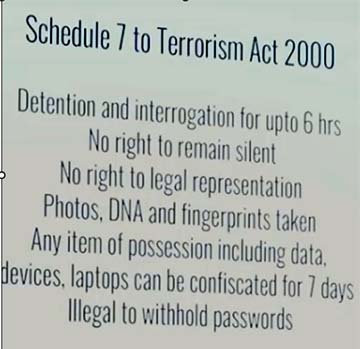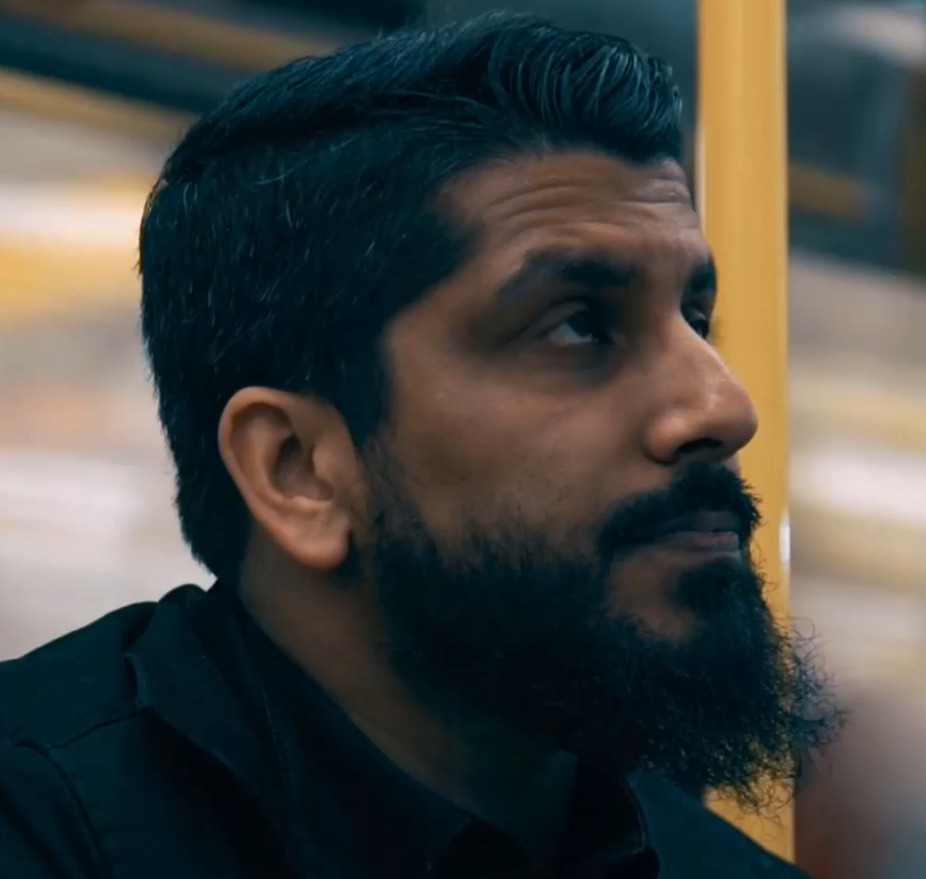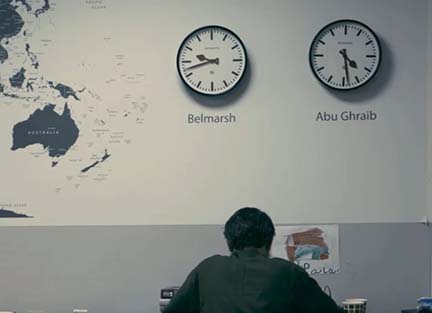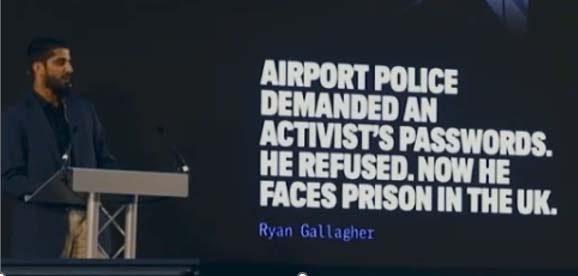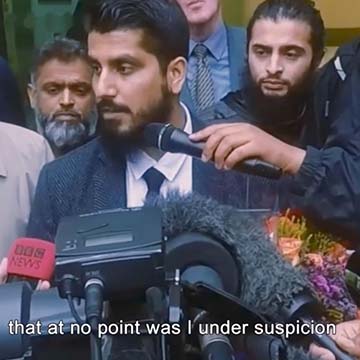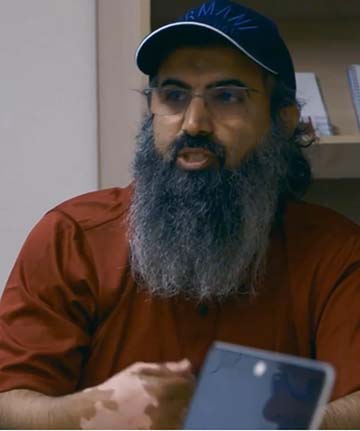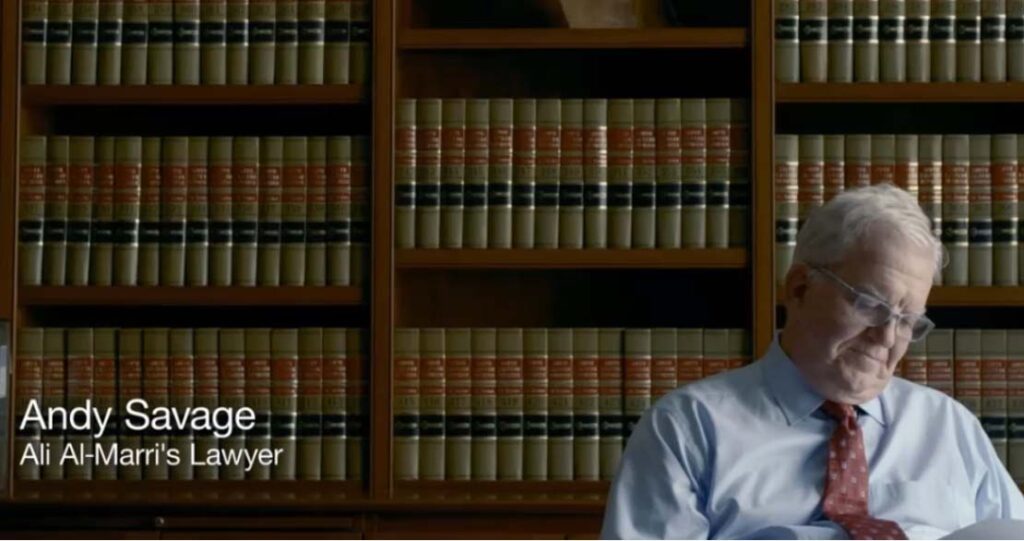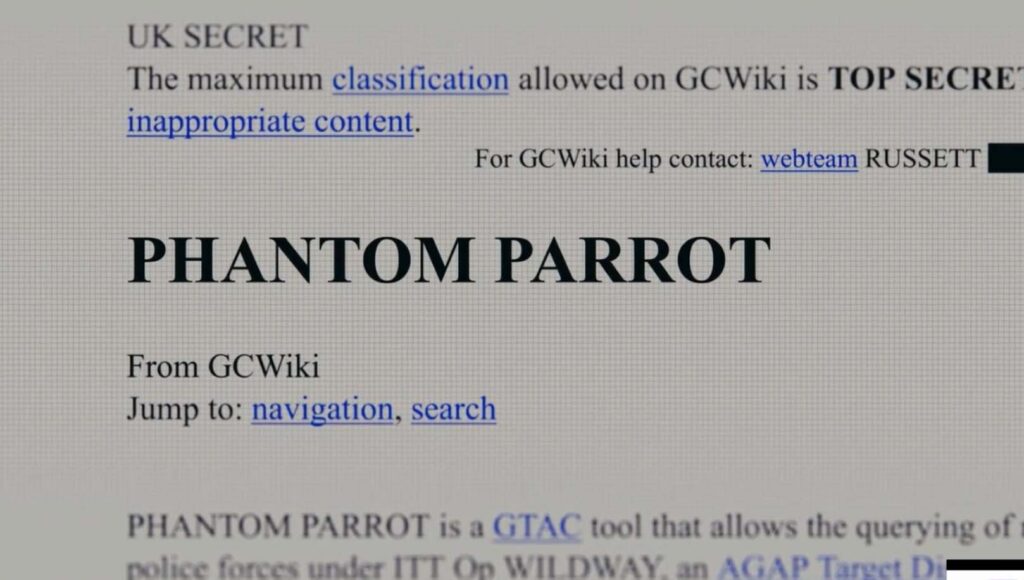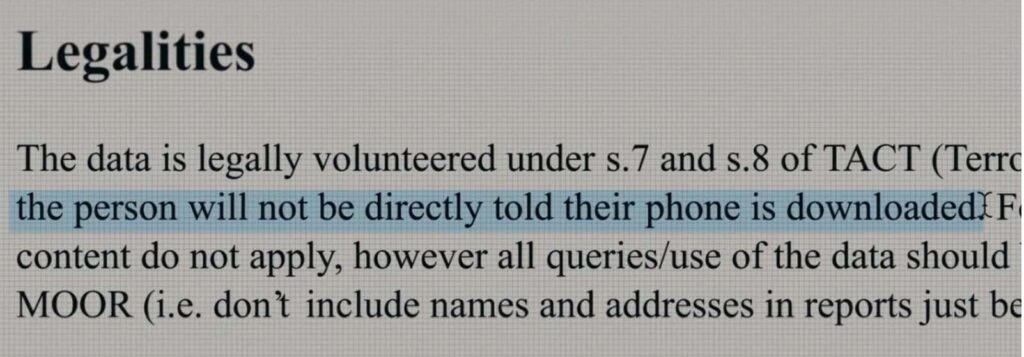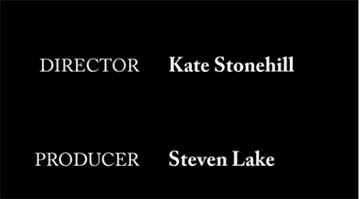By Lucy Komisar
“Phantom Parrot’ is an alarming and compelling film about a repressive UK law aimed at individuals the UK government doesn’t like because they support victims of repression by countries the UK does like. It was directed by Kate Stonehill and produced by Steven Lake and presented by The Double Exposure film festival in Washington in November.
This story doesn’t arrive out of nowhere. Many Americans/westerners think the UK is cool because they love the Royals. Forget that Royals are a line of inherited pseudo-potentates, because who elected them? They forget the UK killed millions in South Africa, Kenya, India, carried out genocide in Tasmania, that 1930s Royals supported Hitler. But they dress well, mix with the world’s super-rich, and U.S. and UK mainstream media fawn on them.
Now, harken back to a great Brit, George Orwell, whose 1984 predicted the current scary repressive legislation detailed in “The Phantom Patriot.”
This is the story the film tells.
The Terrorism Act was signed into U.K. law in 2000. It allowed authorities to stop and search people at border surveillance just because they want to. They could strip search people, take biometric data, confiscate belongings. If targets didn’t hand over passwords to devices, they could be in imprisoned for three months. The government could act with no legal warrant. It has been used against reporters and human rights workers, people involved in activities the authorities don’t approve of. It’s what dictatorships do. So does “Old Blighty.”
In 2016, the government targeted British human rights activist Muhammad Rabbani, who was stopped and questioned on his way home from a research trip.
Rabbani is the Managing Director of CAGE, an advocacy organization working to investigate and raise awareness of human rights violations arising from the War on Terror. It started in 2003 in opposition to the torture of prisoners. He was investigating a case of person arrested and held in the U.S. who claimed he was tortured.
As is well known, the UK collaborates with the U.S. on targeting human rights advocates. Note the clocks in the film of Belmarsh in the UK, where journalist Julian Assange is imprisoned under conditions the UN Special Rapporteur on torture, Nils Melzer, calls torture, and Abu Graib in Iraq, where the U.S. has held and tortured Muslim prisoners, as described in reports kept secret by the U.S. Senate.
The story the film tells is chilling. Muhammad Rabbani was stopped repeatedly. He has been asked for passwords to his devices before and refused. He said the contents of his devices affected the privacy and confidentiality of others. He asked an audience if they would give their password if the alternative was three months in jail. “I hope the answer would be no.” And noted that he worked with vulnerable people.
He was interviewing someone tortured in an Arab country. “Why should he put that person in danger by providing details to the UK who may or may not be dealing with that country?”
This time he was arrested, not suspected or accused of a crime but arrested. Can police get access to all documents, records, even without suspicion of wrongdoing? He got conditional discharge, no prison, but guilty of a terrorism offense.
One of the cases involved prisoner Ali Al-Marri, who lived in Qatar. He was declared an enemy combatant, held in solitary confinement in Charleston SC from 2003.
Andy Savage, the local lawyer who represented him, talks about the cruelty of the U.S. incarceration of Al-Mari, who he says thought he was losing his mind.
Later, on his release: “Were you expecting to be tortured.” “Yes, I was incommunicado, shackled leg ironed to the floor, socks in my mouth and taped.”
After years of torture, Al-Marri pleaded guilty in 2009 to one count of conspiracy to provide material support to a foreign terrorist organization. Savage wanted to challenge that, wanted to put on the record that the so-called antiterrorism movement in the U.S. was offensive conduct by the American government. “I was in military from 1968 to 1996…I love America.” But he respected this was a way for Ali to get out
Rabbani lost his appeal on the guilty ruling. It took five years for police to return his devices. But he would be stopped again and refuse to give his passwords. His case was referred to the War Crimes Unit of the UK Metropolitan police.
The UK wanted his documents. He thought it was because it would implicate U.S. FBI agents in torture of someone from a “friendly” Arab country. Why should he put that person in danger by providing details to the UK who may or may not be dealing with that country? Not suspected or accused of a crime, he got no prison, but conditional discharge on a terrorism offense. “We can’t prove you guilty but you are guilty anyway.”
The filmmakers says that the UK, which pretends to be a country that respects human rights, continues to to steal information from people’s phones and send it to GCHQ, the British surveillance agency.

As the filmmakers indicate, the British operation is one of numerous surveillance systems, including the major one revealed by Edward Snowden who told how the U.S. NSA (National Security Agency) has been illegally spying on millions of Americans.
This is a very important film which alas will probably not get the audience it deserves. Because the people/companies who run mainstream film projection stay within the bounds of what is approved by the Deep State. Cheers to Stonehill and Lake for making it and to Double Exposure for presenting it.


